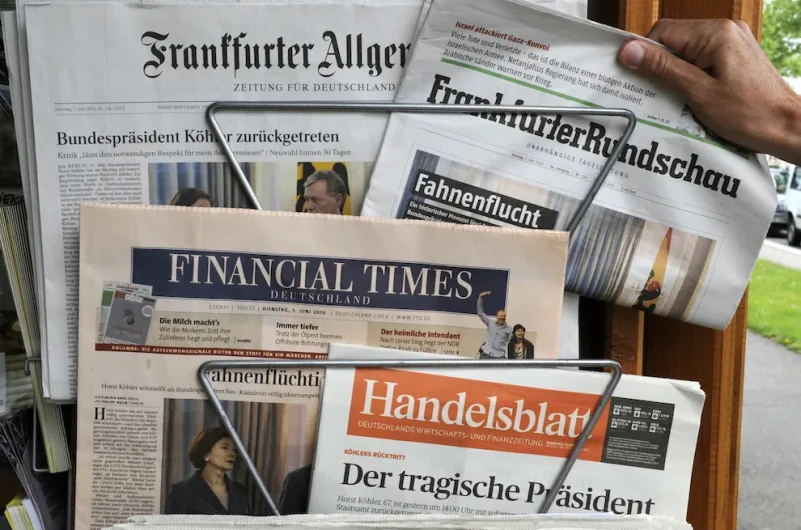When news moves from one language to another, it also moves between cultures, political narratives, and worldviews. Nowhere is this more visible than in German to English translation in journalism. German news outlets often report events with context, nuance, and cultural references that don’t automatically transfer to international English-speaking audiences. A single mistranslated adjective, timeline, or quote can shift public perception. And because English is the dominant global media language, the way German news is translated can shape how millions interpret political movements, economic trends, environmental disasters, and social conflicts.
In this in-depth article, we’ll break down the six critical translation decisions that determine how German events are understood across borders. These decisions affect tone, accuracy, and the emotional charge of a story—and ultimately influence the global conversation. Whether you’re working in journalism, localization, political communication, or international reporting, knowing these pressure points helps you craft translations that are clear, culturally sensitive, and globally responsible.
- Choosing the Right Level of Tone (Neutral vs. Emotional)
German journalism often leans more neutral than English media, especially in political or economic reporting. Translators must decide whether to maintain the original neutrality or adjust the tone for English audiences who are used to more direct or urgent phrasing.
For example, a German political article might describe a crisis as „angespannte Lage“ (“tense situation”), while English outlets might choose “crisis,” “escalation,” or “high-risk standoff.” Each choice affects how readers emotionally interpret the event. Skilled translators preserve accuracy without artificially inflating or dulling the tone.
- Interpreting German Political Terminology
German political vocabulary rarely has perfect English equivalents. Terms like Bundesrat, Innenpolitik, Rechtsradikalismus, and Ampelkoalition carry meanings shaped by German political structures.
Literal translations often mislead. A translator must decide whether to:
- keep the German term and explain it,
- substitute an English equivalent, or
- rewrite descriptively depending on the publication.
For example, „rechtspopulistische Strömung“ is more nuanced than “far-right movement.” It implies populism, not necessarily extremism. Responsible translation ensures readers correctly grasp political alignments.
- Deciding How Much Context to Localize
German news assumes readers understand certain national references: political parties, regional issues, historical tensions, cultural norms. English readers may not share this background.
When translating for global media, the translator must decide:
- Should context be added?
- Should references be simplified?
- Should cultural details be clarified or preserved?
Take „Länderfinanzausgleich“—a system of state financial redistribution. Translating this as “state financial equalization system” is correct but still confusing. Adding short context like “Germany’s system for balancing wealth between federal states” can dramatically improve comprehension.
- Handling Quotes and Speech Nuance
German quotes often use indirect speech („Er sagte, er habe…“) or maintain subtle ambiguity. English journalism tends to prefer clarity and directness.
A translator must choose whether to:
- maintain the ambiguity,
- convert to direct speech for readability,
- or clarify unclear statements without altering intent.
Misjudging this can misrepresent the speaker’s tone or certainty. For example, the German „könnte“ can mean “could,” “might,” or “may be able to”—each carries its own implication in English reporting.
- Interpreting German Compound Nouns in Headlines
German news headlines use powerful compound nouns like „Wirtschaftsaufschwung“, „Regierungskrise“, or „Klimaschutzpaket“. English headlines demand sharper, shorter language.
The translator must break the compound into a concise but accurate phrase:
- “economic upswing,”
- “government crisis,”
- “climate protection package.”
The danger is oversimplifying or exaggerating. For example, „Klimaschutzpaket“ refers to a coordinated policy bundle—not just “climate plan” or “climate bill.” Precision matters in shaping international policy conversations.
- Balancing Speed vs. Accuracy in Breaking News
German media often provides highly cautious, verified updates—even during fast-moving events. English-language media tends to prioritize speed.
When translating breaking news, the translator must decide:
- translate conservatively (risk being slower),
- or keep pace with English media while noting uncertainties.
For example, German reports may use phrasing like „nach ersten Erkenntnissen“ (“according to early findings”), which English translators must preserve to avoid overstating facts. These decisions shape global understanding of crises, especially during elections, attacks, or natural disasters.
How Translation Shapes Global Narratives
Because English has massive reach, a German news story translated into English often becomes the version shared globally. Subtle shifts—like choosing “protest” vs. “riot,” or “concern” vs. “threat”—can influence public opinion, investor behavior, diplomatic reaction, and cultural discourse.
The translator becomes a gatekeeper of narrative accuracy. Their decisions determine whether readers worldwide truly understand German events or receive a distorted picture shaped by linguistic shortcuts.
Best Practices for Translators Handling News Content
Professionals use a consistent workflow:
- Identify tone—preserve neutrality unless context requires adaptation.
- Choose accurate English equivalents for political terms.
- Add minimal, necessary context for non-German readers.
- Translate quotes faithfully while preserving nuance.
- Break down compounds into simple but accurate phrases.
- Verify facts before translating—even if speed is a factor.
This balance is what separates literal translation from responsible journalistic localization.
Conclusion
Translating German news into English is a powerful responsibility. The way events are framed, contextualized, and described can shape how the world interprets what’s happening in Germany. From political terms to tone decisions, from headline compounds to breaking news caution, each choice influences narrative clarity. Mastering these translation decisions helps ensure stories remain accurate, fair, and globally accessible. For anyone working in German to English translation, especially in journalism, your work isn’t just linguistic—it’s part of shaping international understanding.
FAQs
- Why does German political terminology require special handling?
Because many concepts don’t exist in English-speaking political systems. - Should translators add context to German news articles?
Yes—when needed for English readers to understand references. - How do compound nouns affect headline translation?
They require careful simplification without distorting meaning. - Do German news translations influence global perception?
Absolutely—English versions often become the globally shared narrative. - Is literal translation acceptable in journalism?
Only if it preserves meaning, tone, and context without confusing readers


